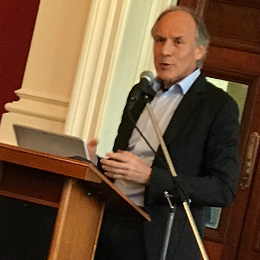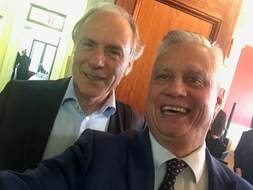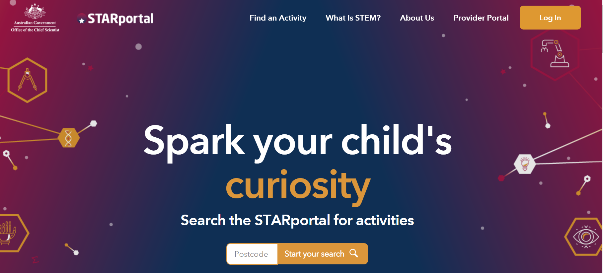Recently I was invited by QUT to join some of their staff for an intimate working lunch with Alan Finkel (Aus Chief Scientist) and Cathy Foley (Chief Scientist CSIRO).
While we were brainstorming the desired future of K-12 schooling, there were a number of key messages that Alan and Cathy shared during the engagement:
- K-12 schooling needs to continually emphasize Real World Applications during the episodes of learning.
- Schools need to create a lot more industry/community partnerships to support and facilitate the learning. “Don’t just put inappropriate expectations on teachers”.
- “It’s not all about STEM” Prof Alan Finkel. All subjects feed into the metacognitive process and analysis. For example, Alan mentioned that English literature would be highly pertinent to developing innovative scientific thought.
- Schools need to create more learning and working which is inter-disciplinary or multi- disciplinary.
- Schools need to tell more contemporary success stories related to the learning that is occurring at a micro and macro level.
- With more real world applications and application of authentic contexts during learning, there appears to be an increase in females choosing to engage in fields of study which have previously had low numbers of female engagement. The areas include science, engineering and mathematics.
Alan and Cathy introduced the newly revised Australian Government “Star Portal” which is a highly needed information source for schools and parents in seeking out STEM activities and resources. https://starportal.edu.au/
Alan discussed some key skills that are needed to be enriched by all to engage in a career in the contemporary world which were:
- EQ and Soft Skills
- Digital Capability on top of your normal role/job including data analysis
- Global cultural intelligence and being able to speak foreign languages
They were supporting the notion that Science, Maths, Engineering, Technology professionals do not operate by themselves in a room as they work in teams, collaborate and engage to solve real world problems. They were concerned that generally schools do not support or replicate this model during the learning in schools.
During the course of chatting alone with Alan, he elaborated on the type of individual he would favour leaving junctures of education. He indicated that the individual would need to have a good grasp or all the soft and emotional intelligence skills while having one deep academic and knowledge passion.
It was heartening to reflect on these and more messages while quietly celebrating how Lutheran Schools have and are adopting these ways of working as part of the learning journey for our many inquiring minds.
Derek



